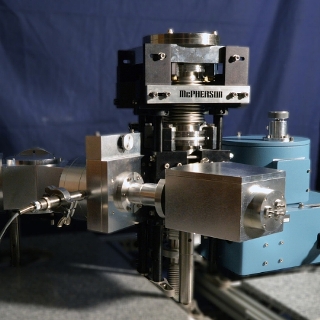Apr 1 2015
McPherson's newest VUVAS spectrophotometer capitalizes on the speed and sensitivity of direct detection, ultraviolet sensitive CCD detectors. Faster data acquisition enables more complex data sets involving spectral response vs. temperature or time.
 UV Absorbance Spectrophotometer works from 120-1000 nanometers and uses a sensitive CCD detector (PRNewsFoto/McPherson)
UV Absorbance Spectrophotometer works from 120-1000 nanometers and uses a sensitive CCD detector (PRNewsFoto/McPherson)
Fast acquisition also protects against potential measurement errors due to changing sample or environmental conditions. No parts move during measurement and the system attains very high reproducibility and wavelength calibration. For absorbance measurements from 120 to 215 nanometers, for example, users can collect the entire range with better than 0.5 nanometer spectral resolution in milliseconds.
Spectrophotometer Applications:
- Spectral Characterization, Deep UV Optical Absorption Spectra
- Absorption Spectra v. Cryogenic Temperature
- Transient Absorbance / Kinetics
- Material Science
- Energy and Efficient Lighting Research
More about the fast spectrophotometer:
McPherson's fast spectrophotometer features an open concept sample area. It works with commercial cryostats as well as sample cells having magnesium fluoride or other UV transmitting crystalline windows. A three-position sample mount for one-inch diameter optical samples is standard equipment. The computer optimized optical system delivers focused monochromatic light from deuterium or xenon sources to the sample. In addition to material or optical characterization, the applications include process control, measuring optical transients or kinetics. Specialty detectors with time resolution on order nanoseconds are optionally available.
Fast acquisition for a wider spectral range:
The spectrophotometer system is normally equipped with a single diffraction grating and light source. Available options include a grating turret for the monochromator and a double light-source attachment. Systems configured with these accessories operate over the range of 120 nanometers to 1 micron. Depending on the selected gratings, data acquisition occurs in 100 or 200 nanometer wide swaths. The grating can be freely set to any center wavelength as required for the application at hand.